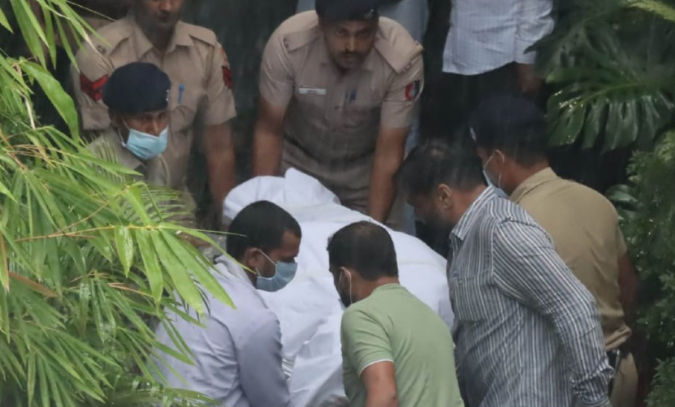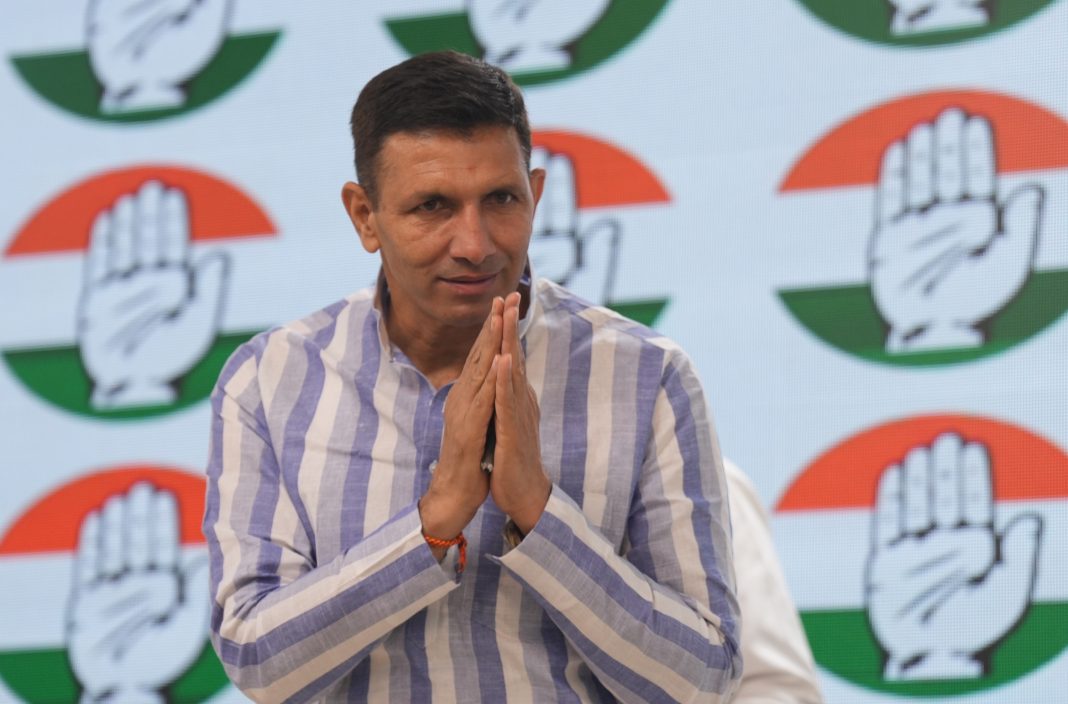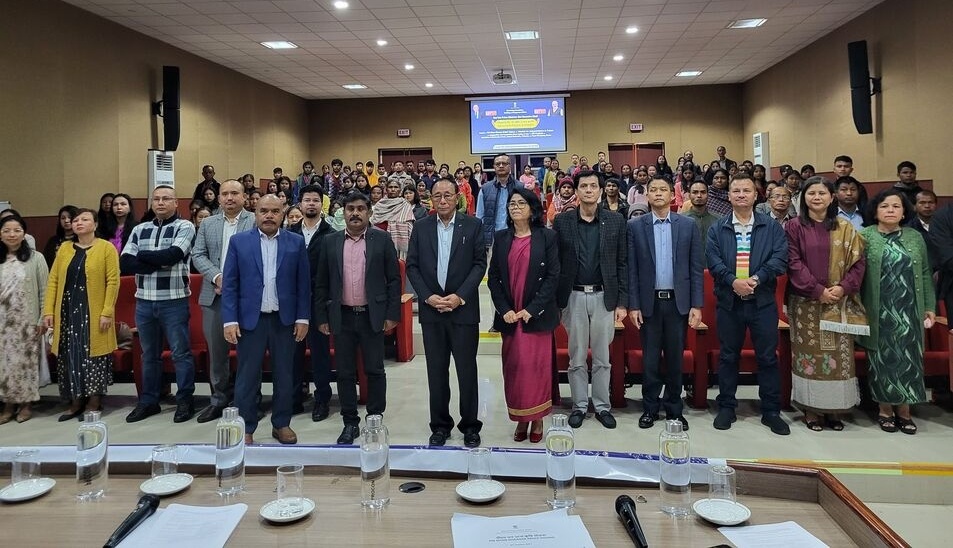Chandigarh, Oct 11: The Haryana government on Saturday shunted out Rohtak Superintendent of Police Narendra Bijarniya, one of the cops against whom IPS officer Y Puran Kumar’s wife was seeking action for allegedly abetting his suicide, even as the Opposition said that Kumar’s family is not getting justice.
In his first comments in the sensational case that involves allegations of caste-based discrimination against the deceased officer, Chief Minister Nayab Singh Saini said whoever is found guilty in the probe will face action irrespective of their position and asked the Opposition not to politicise it.
Chandigarh DGP Sagar Preet Hooda, who visited the residence of Puran Kumar, said his family members have refused to give their consent for the post-mortem due to some grievances and discussion are underway to resolve them.
As the controversy deepened, several officials and ministers from Haryana and politicians from various states met Kumar’s wife, IAS officer Amneet P Kumar, on Saturday.
In a ‘final note’ purportedly left behind by Kumar (52), a 2001-batch Indian Police Service (IPS) officer, after he allegedly shot himself dead at his residence on Tuesday, he had accused eight senior cops, including Bijarniya and Haryana DGP Shatrujeet Kapur, of “blatant caste-based discrimination, targeted mental harassment, public humiliation and atrocities”.
In a brief official order issued on Saturday, IPS officer Surinder Singh Bhoria was appointed as the new Rohtak SP. It said the posting order of Bijarniya will be issued separately. There was no mention of Puran Kumar’s death case.
Meanwhile, Kumar’s family objected to shifting the body of the IPS officer from the Government Multi-Speciality Hospital in Sector 16 here to the Post Graduate Institute of Medical Education and Research (PGIMER) on Saturday, “without their knowledge”.
Speaking to reporters here, Amit Rattan, the Punjab AAP MLA from Bathinda Rural and brother-in-law of the deceased, said, “They have shifted the body without asking us. Injustice is being done to us. Five days have passed since a DGP-level officer died, but we have not got justice yet.” Rattan is the brother of the Kumar’s wife.
Mukesh Kumar, a member of Dalit body Valmiki Army, said the Chandigarh administration took the body to the PGIMER without the consent of the family.
Unless justice is delivered to the family and action is taken in the matter, post-mortem and cremation will not be allowed, said Kumar, who is a member of a 31-member committee formed by the outfit to ensure that the family’s demands and concerns are addressed by authorities.
Another representative of the committee told reporters here that DGP Haryana Kapur and outgoing Rohtak SP Narendra Bijarniya should be terminated from service and arrested.
Prominent leaders who met the IPS officer’s wife included Congress leaders Randeep Singh Surjewala, Deepender Hooda and Charanjit Singh Channi and AAP leader Manish Sisodia.
Surjewala said the IPS officer’s “suicide” has shaken the soul of the country. “It is a heart-wrenching incident,” he said.
The Congress leader said if justice cannot be ensured in the case of a senior IPS officer, what would be the fate of a common man.
Channi attacked the ruling Bharatiya Janata Party (BJP) and said justice must be given to his family.
“He (Kumar) used to fight for the rights of Dalits and even gave up his life. Five days have passed, but his family is not getting justice,” the former Punjab chief minister said.
Addressing a gathering of party workers in Panchkula, Haryana Chief Minister Saini said he has assured Kumar’s family of justice and asked the opposition Congress not to play politics over this issue.
“I had said that we will probe it (the matter) and after investigation, whoever is found guilty, action will certainly be taken against him. No matter how big a person he may be,” said Saini.
Saini said he has spoken to Kumar’s wife. “We are also in touch with the Centre for the resolution of this issue,” he said.
In a post on X, Bahujan Samaj Party (BSP) chief Mayawati said the case has shocked the country and “Dalits and Bahujan” communities are particularly agitated over the development.
The case “proves that despite numerous claims, the scourge of casteism persists, especially in governance and administration, and that governments are failing to curb it. (PTI)




